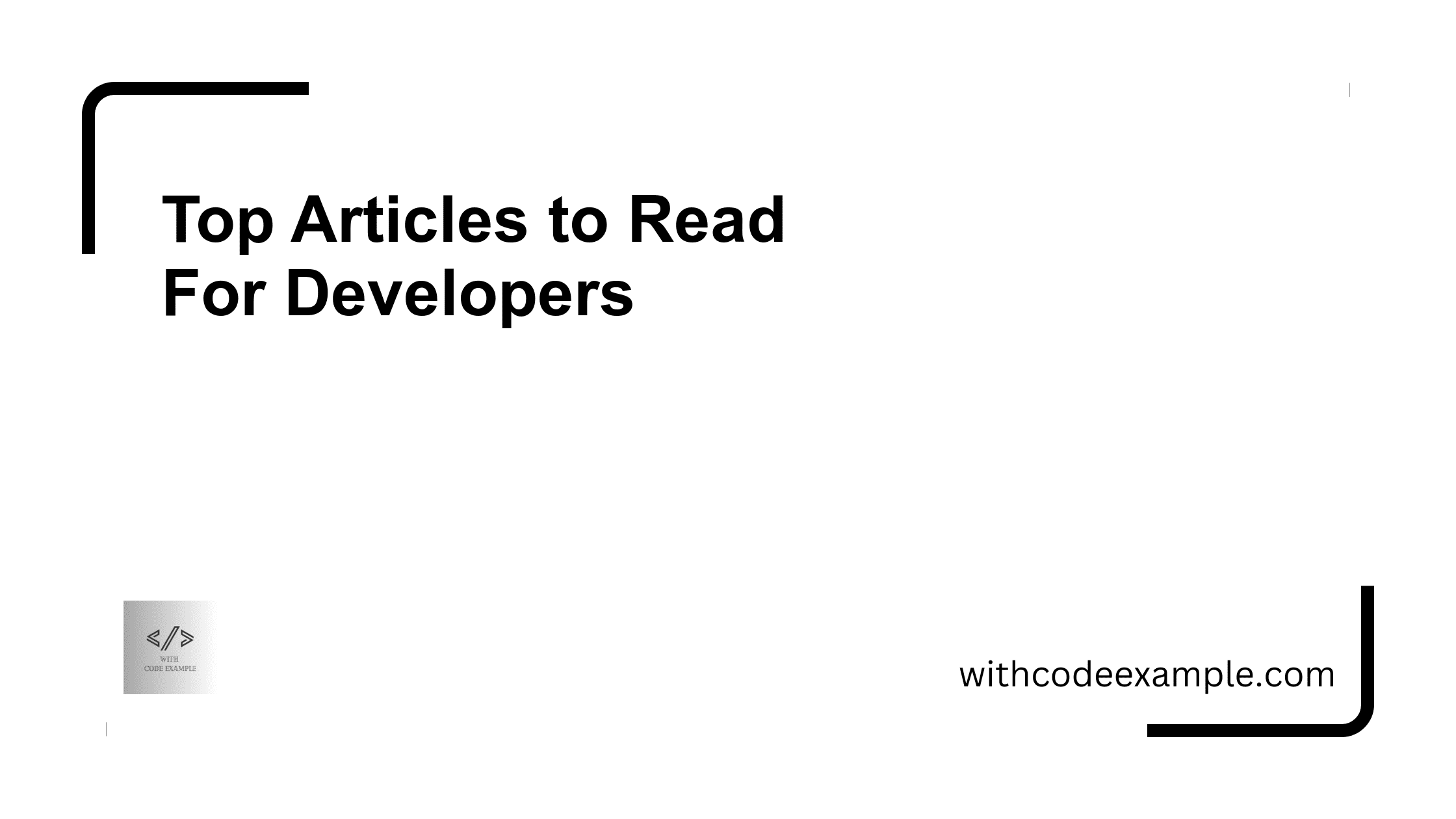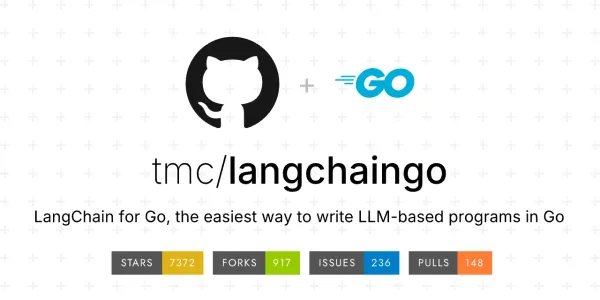Top Articles to Read For Developers

Discover a curated collection of top articles for developers looking to enhance their skills and knowledge. Dive into practical frontend challenges, explore portfolio-building templates, benchmark performance metrics, master modern technology stacks, optimize SQL queries, and more. This guide covers everything from React tips and API management to Docker optimization and influential coding books, ensuring developers have the resources to succeed in 2024 and beyond.
100 FREE Frontend Challenges
https://dev.to/bigsondev/100-free-frontend-challenges-3f0?ref=dailydev
In the spirit of building strong coding habits and embracing the #100DaysOfCode challenge, we’re excited to share our curated “Design To Code” challenges. Each day, you’ll tackle recreating unique designs into functional websites or web apps using HTML & CSS. Go beyond with JavaScript or frameworks for added interactivity and maybe even spark your next entrepreneurial idea! These challenges range from crafting Profile Cards to dynamic shopping carts and mobile-friendly navigation solutions. Whether you’re refining form handling or designing engaging interfaces like music events or recipe displays, each challenge aims to elevate your skills and portfolio. Completing all 100 challenges could supercharge your journey to landing your dream job in web development! 🫡 🌟 That’s a wrap on our project-based learning journey! We’ve put our hearts into creating BigDevSoon, an app that’s been in the making for 3 years. Our SUMMER20 code is live until September 21, 2024—join us in mastering these challenges and supporting our mission. Together, let’s empower developers worldwide! ❤️
Free Developer Portfolio Template: Astro + Tailwind CSS
https://javascript.plainenglish.io/free-developer-portfolio-template-astro-tailwind-css-dd24db526467
- ✨ Imagine scrolling through the online world these days—it’s all about having a strong presence, right? Well, GitHub Profile READMEs are awesome for sharing your projects and yourself. But guess what’s even better? Having your website! It levels up your online game and makes it easier to find in Google search results.
- 🚀 Plus, building your website is a breeze these days—way easier (and way more fun!) than you might think! It’s like having a fancy digital business card that screams “Look at me, I’m awesome!”
- 🎨 I wanted a website that not only looked good but also showed off my work, skills, and personality. So, I built one using Astro—this super cool framework that makes website building a breeze. Check it out at vinitshahdeo.com and let me know what you think!
- 🌟 And guess what? I’m sharing the love with a free & open-source template you can use too! Check it out on GitHub. This template was nominated as the project of the month by the Peerlist community.
Performance Benchmarking: gRPC+Protobuf vs. HTTP+JSON
https://itnext.io/performance-benchmarking-grpc-protobuf-vs-http-json-03913aa75cfc?ref=withcodeexample.com
While JSON over HTTP remains popular for its simplicity, gRPC is gaining traction in Microservices for its efficient data encoding with Protocol Buffers. We aimed to benchmark performance in Go, ensuring fair comparisons by isolating data transport and serialization. Both gRPC and HTTP endpoints were stripped of extraneous operations, focusing solely on protocol performance. Conducted locally, our benchmarks highlighted surprising results: HTTP/2 (H2C) was slower than gRPC, and gRPC itself slightly slower than HTTP/1. These findings challenge norms; despite performance nuances, Protocol Buffers with gRPC remains robust for structured inter-service communication.
Mastering Modern Technology Stacks: Your Ultimate Guide for 2024 🚀
https://dev.to/thetoosharpcoder/mastering-modern-technology-stacks-your-ultimate-guide-for-2024-1km6
- A technology stack, or tech stack, is a collection of tools and technologies that collaborate to develop and operate applications seamlessly.
- Layers and Components define a tech stack’s structure, starting with the Operating System (OS) like Linux, Windows, or macOS, providing foundational support.
- Server-Side Programming such as Java, Python, or Node.js manages business logic and data interactions, crucial for robust application functionality.
- Web Servers like Apache, Nginx, or Microsoft IIS handle HTTP requests and serve web content efficiently to users.
- Databases such as MySQL, MongoDB, or PostgreSQL store and manage data with precision, tailored to application needs.
- Client-Side Programming uses JavaScript and TypeScript to enhance user interfaces and execute dynamic web interactions.
- Front-End Frameworks/Libraries like React, Angular, Vue.js, or jQuery streamline UI development and enhance user experience.
- Deployment & Infrastructure tools such as Docker, Kubernetes, AWS, Azure, or Google Cloud Platform ensure smooth transitions to live environments.
- Top 5 Tech Stacks dominating 2024 include MERN, MEAN, LAMP, Ruby on Rails, and Python-Django, each tailored for specific development needs.
- Benefits of using technology stacks include efficiency, scalability, security, and cost-effectiveness, supported by robust community engagement and optimized performance.
SQL Query Optimization with 10 Proven Techniques for Enhanced Performance
https://blog.devops.dev/sql-query-optimization-with-10-proven-techniques-for-enhanced-performance-b806e4952e46?ref=withcodeexample.com
Optimizing SQL queries involves strategic considerations to boost efficiency, readability, and maintainability. Here’s a breakdown of key techniques:
1. Use Proper Indexing
2. Limit SELECT Statements
3. Avoid SELECT DISTINCT Unnecessarily
4. Use Joins Efficiently
5. Minimize Subqueries
6. Avoid Wildcards at the Beginning of LIKE Queries
7. Use UNION ALL Instead of UNION
8. Optimize Aggregations
9. Avoid Functions on Indexed Columns
10. Use EXPLAIN to Analyze Queries
101 React Tips & Tricks For Beginners To Experts
https://dev.to/%5Fndeyefatoudiop/101-react-tips-tricks-for-beginners-to-experts-4m11
I have over 5 years of professional experience working with React, and in this comprehensive article, I share 101 essential tips and tricks I’ve learned over the years. This guide assumes familiarity with React basics like props, state, and context. Most examples use Vanilla JS, making them adaptable for TypeScript. The code isn’t production-ready, so use it cautiously. The article is divided into categories, starting with “Components Organization,” where tips include using self-closing tags for compact code and preferring React fragments over DOM nodes to keep the structure clean.
The 5 Worst Anti-Patterns in API Management
https://thenewstack.io/the-5-worst-anti-patterns-in-api-management/?ref=withcodeexample.com
Imagine leading DonutGPT’s Platform Engineering as you oversee millions of AI-generated donut orders annually. With APIs crucial to resellers, ensuring their reliability underpins customer satisfaction and management’s expectations for high availability. Currently, your VM-based production faces challenges: disparate services, each with varying security and monitoring. Java services use outdated TLS 1.1, Python opts for TLS 1.3, complicating governance.
Apache Kafka Series
https://www.baeldung.com/apache-kafka-series?ref=withcodeexample.com
Apache Kafka, a popular distributed event streaming platform, serves as the backbone for many real-time data pipelines. It facilitates high-throughput, fault-tolerant data transmission through its topic-based architecture and robust APIs. Integrating Kafka with Spring Boot simplifies setup and management, ensuring efficient data handling. Key concepts include Kafka Connectors for seamless integration, SSL configuration for secure communication, and Docker deployment for easy setup in development environments.
How Stripe Scaled to 5 Million Database Queries Per Second
https://blog.bytebytego.com/p/how-stripe-scaled-to-5-million-database?ref=withcodeexample.com
Start selling to enterprises with just a few lines of code. WorkOS offers a comprehensive User Management solution tailored for B2B SaaS, including SSO, SCIM, RBAC, and FGA capabilities. Unlike traditional models, WorkOS adopts an organizational approach ideal for B2B environments. Its APIs are modular and user-friendly, enabling seamless integration in minutes. User Management is free for up to 1 million MAUs and includes essential features like RBAC, bot protection, and MFA. Get started today to streamline your enterprise software integration effortlessly.
Optimizing Docker Builds: Leveraging Build Cache for Efficient Development
https://packagemain.tech/p/docker-build-cache?ref=dailydev
Docker Build Cache Optimization In modern software development, Docker serves as a fundamental tool for building, shipping, and running applications. One critical challenge developers encounter is optimizing build times, especially for large and complex applications. Docker’s build cache addresses this challenge by reusing previously built layers, significantly speeding up subsequent builds. This article explores how to effectively create, store, and share build cache across different stages using Docker Registry. Docker build cache operates by reusing layers created by each instruction in a Dockerfile, minimizing redundant work during image rebuilds. Multi-stage builds further enhance efficiency by allowing the creation of intermediate stages like a builder stage, which can be independently cached and reused. This approach not only streamlines the build process but also enhances productivity by reducing the time spent on repetitive tasks. To leverage Docker build cache effectively, developers can employ strategies such as breaking down Dockerfiles into multiple stages, minimizing layer changes, and excluding unnecessary files with .dockerignore. Regularly updating and sharing the cache through Docker Registry ensures all team members benefit from optimized build processes, fostering faster development cycles and increased efficiency.
Can You Still Learn Coding From Books?
https://www.codemotion.com/magazine/dev-life/you-can-still-learn-coding-from-books/?ref=dailydev
- 📚 Developers often read books that confirm their beliefs, using them as shields against criticism. However, it’s worth questioning if these books genuinely shaped our strong convictions or if cognitive biases skew our decisions.
- 📖 Technical books quickly reveal key concepts, making unfinished reads less problematic. Yet, it’s crucial to be knowledgeable when discussing them in public to avoid embarrassment.
- 📘 Here are ten classic programming books that have influenced many developers:
- Clean Code by Robert C. Martin – Essential for aspiring programmers, though some find parts impractical.
- Introduction to Algorithms by Thomas H. Cormen et al. – A comprehensive guide, best approached gradually.
- The Pragmatic Programmer by Andrew Hunt and David Thomas – A must-read, often revisited for its fundamental insights.
- Code Complete by Steve McConnell – A crucial resource for quality software development.
- Accelerate by Nicole Forsgren et al. – Advocates for DevOps with strong evidence and metrics.
- Don’t Make Me Think by Steve Krug – Influential in web design and usability, valuable for all developers.
- The Mythical Man-Month by Frederick P. Brooks Jr. – Highlights the futility of adding more people to delayed projects.
- Refactoring by Martin Fowler – A guide to improving legacy code.
- Design Patterns by Erich Gamma et al. – Important for understanding reusable object-oriented software design.
- Designing Data-Intensive Applications by Martin Kleppmann – Covers comprehensive data management concepts.
- 🎓 While these books are foundational, the journey of learning is subjective, and new influential coding manuals continue to emerge.



